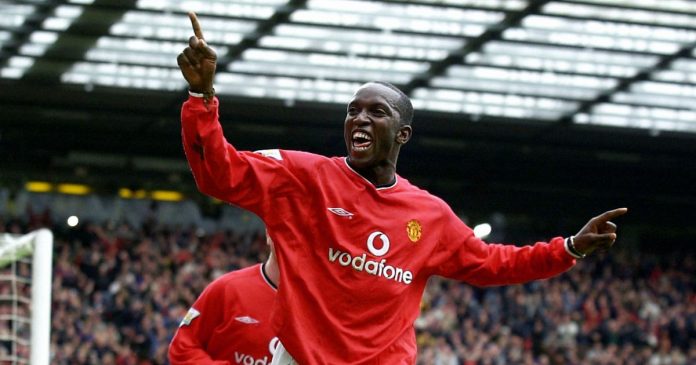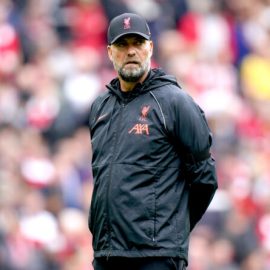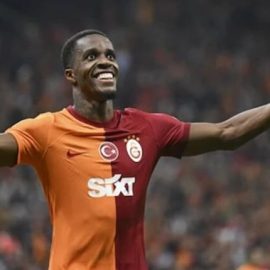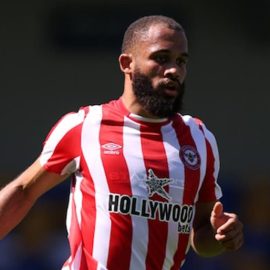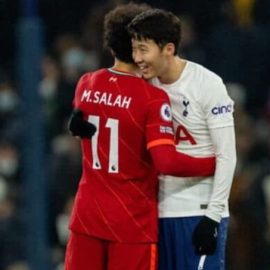After reading my Soccerlens colleague’s article, “Landon Donovan’s Hypocrisy,” I felt compelled to respond in greater length than a simple comment allows. The article recounts Donovan’s criticism of David Beckham in July 2009 and continues to accuse him of hypocrisy. Of course, for this accusation to stick, Donovan would have to “feign to be what he is not or believe what he does not” (according to the Merriam-Webster’s Dictionary definition).
As a preface, I want to clarify that I intend to argue only that Donovan is not a hypocrite. None of my argument pertains to the relative quality and talent of both players. Beckham has had a storied career and he continues to show longevity and endeavor. Thus, I turn to my response.
Apples and Oranges, Sir.
I understand that a Beckham apologist would take offense to Donovan’s behavior. The American was vocal in his criticism in July 2009, as was noted at the beginning of the article.
“My sense is that David is clearly frustrated, that he’s unhappy and, honestly, that he thinks it’s a joke. I also kind of feel that he’s taking the team for granted. I don’t see dedication or commitment to this team, and that’s troubling”.
The alleged hypocrisy occurred in December 2009 when we learned Donovan would be loaned to Everton for ten weeks beginning in January. Donovan was, in my colleague’s words, “doing exactly the same thing he criticized Beckham for doing seven months ago.”
For the rest of us who aren’t as reactionary or near-sighted, we know that Donovan was not mimicking his on-again-off-again teammate. Why?
First, recall that Beckham arrived in Los Angeles in July 2007. There was considerable fanfare – not only because the global icon was going to play in MLS, but because he openly declared his desire to see the sport grow in the U.S. This was evidenced by a contract provision for future ownership in a MLS franchise, as well as his own words.
“I’m coming there not to be a superstar. I’m coming there to be part of the team, to work hard and to hopefully win things.”
You see, Beckham made it sound like he wanted to be in the U.S. After the 2008 season, he was loaned to AC Milan – initially planned for January through March of 2009. Why only until March? So that he could return to Los Angeles for the start of the 2009 MLS season. But Becks did not return in March. Instead, he extended his loan until July and thereby missed half of the MLS season.
Almost immediately upon his return, Beckham made it clear that he wanted to play for England in 2010. This implied another move abroad. In other words, after missing half a season on loan to AC Milan, he returned to the U.S. saying he would likely go abroad again – all while his teammates were actively engaged in the year’s campaign.
Donovan might have lacked discretion in his criticism, but it isn’t difficult to understand his frustration. Beckham had been handed the keys to the city, the captain’s armband, and a blank check, but he seemed to be taking it all for granted. In order to “be a part of the team” and “hopefully win things,” one cannot put himself before the team.
Similarly, one cannot blame Becks for wanting to play in one more World Cup. The problem is not what he wanted, but how he went about his business.
Why Donovan’s Story Differs
First, when Donovan criticized Beckham in July 2009, he had spent more than eight seasons in MLS and four with the Galaxy. He had already given much to the league and his team. Conversely, Beckham arrived and has been abroad or talking about going abroad for the majority of his brief tenure in MLS.
Second, Donovan went to Bayern Munich on loan in 2009, but returned for the start of the MLS season. Conversely, Beckham went to AC Milan and missed half the season.
Third, Donovan may be the most famous American soccer player, but he has never let his celebrity interfere with his team’s performance. Conversely, despite Beckham’s undisputable work ethic and talent, he is all about celebrity. Perhaps his public relations and management team deserves some blame for poor handling of his affairs, but Becks deserves the lion’s share.
Fourth, Donovan’s salary is one of the higher ones in MLS (roughly $900,000 per year), but he is not a “designated player” like Beckham. The designated player rule is strange, I admit, but it exists and should be considered in this context. The Galaxy used its designated player slot on Beckham. Even though his wages would be paid by AC Milan (or whichever team employed him on loan), the Galaxy would be unable to fill the slot so long as his contract was owned by the Galaxy/MLS. In other words, if Donovan were to stay at Everton, the Galaxy would have more freedom to replace him than they do when Beckham leaves for an extended period. Beckham knows this, yet he has abused the goodwill that MLS, the Galaxy, American media, and fans have demonstrated since July 2007.
Too Soon For Hypocrisy
In order for Donovan to truly be a hypocrite, the facts would have to be otherwise. For example, let’s say Donovan publicly announces he wants to stay at Everton through May. He would miss two months of the MLS season. Then, after the World Cup, let’s say he returns to Los Angeles, but reveals he wants to return to Everton or some other European club. Maybe a club makes a move and maybe they wait until January, once again, when Donovan is signed on loan. At that point, Donovan’s situation would start to look more like Beckham’s – it would start to look like hypocrisy.
Donovan is not above criticism. Far from it. He has been castigated by the American and European press at various points in his career. His failure in the Bundesliga warranted criticism. His immaturity and lack of commitment plagued him for a number of years. More recently, he has been mocked for his wrist-kissing ritual before taking penalties.
The point of this discussion, however, is not that Donovan is perfect, or that he is a better player than Beckham. The point is that he has not yet become a hypocrite.
Add Sportslens to your Google News Feed!
